Una versione in italiano dello stesso articolo venne pubblicata qui
The Yugoslav wars in the 1990s have been interpreted in the last two decades as the product of the Serbian political élite, that suddenly turned from socialist to nationalist at the end of the 1980s. Slobodan Milošević has been portrayed as the main responsible of this process. From time to time, this interpretation has been challenged by various revisionist thesis, which tried to deny Milošević’s conversion to “Great Serbian” nationalism.
But why should have the leader of the Serbian communists turned, all of a sudden, into the leader of a “Chetnik front” carving a Great Serbia out of Yugoslavia? Why should we deny Milošević’s evident role in promoting Serbian national populism? The answer I advance, based on the primary sources I have consulted, including transcripts of the sessions of the League of Communists of Serbia (and of the League of Communists of Yugoslavia) today archived in Belgrade and Ljubljana, is that Milošević strategically manipulated Serbian nationalism to stay in power. I am going to briefly explain how and why he did so.
I argue that the primary political goal of Milošević was to ensure the survival of the socialist regime and its monopoly of the power. To do this, he adopted in part the nationalist discourse of Serbian opposition. This intersection of socialist regimes and nationalism was (and still is) typical of different countries led by Communist élites, from the Soviet Union and Romania to China and Cuba.
Differing from what had been previously stated in the relevant literature, the most important political goal of Milošević (1986-1989) was actually not to create a Greater Serbia following Chetnik’s ideology. Milošević showed to be tolerant and benevolent toward expressions of Serbian nationalism for political opportunism. His political conduct and radicalism facilitated, in the context of a multinational federation, the break-up of Yugoslavia. This is different from saying that Milošević was a Chetnik and he wanted deliberately to destroy Yugoslavia. It was not like that. The situation was more subtle. Among the other things, Serb nationalists, in the second half of the 1980s, were dangerous competitors of Milošević and the regime, not (yet) political allies.
When Milošević, at the end of the 1980s talked about Yugoslavia he had in mind a strong state that was already discarded in the 1960s. This model appealed also to the Serbian nationalists (while true nationalists, generally speaking, disliked communists, Milošević included). Basically, all the other Yugoslav nations and minorities did not want such a centralistic model, they wanted something between a confederation and/or a union of free states (this clearly depends by the year we are considering), like Slovenian political leadership guided by Milan Kučan.
Milošević exploited, out of “need” and fear, for the sake of his power-base, the national sentiment in Serbia already activated by non conformist and dissident intellectuals, in order to stabilize the regime and, in the end, his own political power.
In 1986/1987, Milošević thought that if there had to be more disorders in Belgrade and Serbia because of the Kosovo Serbs (the mass protests in the streets seriously worried the rulers: there could be a spillover from Kosovo to Belgrade), the call of a state of emergency could lead him to a cul de sac, forcing him to lose his political power.
On the other hand, at the time, Milošević did not bring the political system in Serbia any closer to democracy. What he did was to gain new legitimacy and support among Serbian public opinion. He did so through plebiscitary maneuvers.
Milošević’s controversial speech in Kosovo Polje (24/25 April 1987) was the beginning of a new political strategy, with the Kosovo’s issue at the top of the political agenda for the subsequent years, finally conducting to the suppression of the two Serbian provinces’ autonomy in 1989 (this very fact could be read – ideologically – as the creation of a Great Serbia; still this is an oversimplification).
Milošević managed his visit in Kosovo Polje organizing the spontaneity, communicated optimism and manipulated the symbolic values of the Serbian nation. Indeed, at the time, he thought essential to find a common solution, in Kosovo, between Serbs and Albanians, otherwise a genocide – at the expenses of Serbs – could have occurred.
We should not forget that at the time, the Serbian (and probably Yugoslav) political and military élite believed that Kosovo could be seriously the starting point of the Third World War, the Serbo-Albanians conflict could be used as a pretext to start a war between Warsaw Pact and NATO (as evinced from the Party documents).
The well known Milošević’s speech held in Kosovo Polje two years later (28 June 1989) was pronounced following the logic of the first one. At the time the Serbian political leadership thought that a civil war could spread in Kosovo between Serbs and Albanians. Most probably, in June 1989, Milošević was talking about future wars in Kosovo and about Kosovo. That was the historical context. On the other hand, his speech could let us understand that Milošević – his mentality – was ready to accept the instrument of war in order to solve political problems. That’s exactly what he did in 1991/1992 and 1998/1999. He was not afraid to enter into a war.
The Yugoslav Party’s leadership, in its last months of 1989- beginning of 1990 was crumbling. The Communist monopoly of power was fading away into a multi-ethnic society, in the context of a sharpening of nationalist conflicts. While Slovenian Communists were ready to give up the monopoly of power, Milošević was not. In Serbia, Communists wanted non-party pluralism. To be sure, they wanted to avoid multi-party system and proposed to introduce a system in which the alternative political organization was, de facto, under full control of the League of Communists. This tactic was connected with Milošević’s fear of giving up the control over the cadres, and the possible loss of the control over Kosovo through free multiparty elections. He believed that Kosovo Albanians, thanks to free elections, would form a compact political movement who simply wanted full independence from Serbia and Yugoslavia. The Serbian leader, still at the beginning of 1990, was in favor of Socialism and social property of the means of production – and was against the private property. This is not surprising, because the high echelons of the Party had the control of the economy.
Moreover, he still persisted (in mid 1990) in defining himself as a Communist by faith who wanted to keep Yugoslavia together (by curtailing the autonomy of the six republics). He was hostile to Chetnik-oriented movements (he did not want them in the rising SPS).
Milošević tried to give new energy to a decaying regime by co-opting and endorsing the issue of Kosovo Serbs. While his political tactics changed according to the circumstances, it is possible to state that until the beginning of 1990 he tried to save the socialist regime and the monopoly of the power. He wanted to control the Party at Yugoslav level, but he was stopped in January 1990 at the XIV Congress of the League of Communists of Yugoslavia, after the fall of the Berlin wall. His concept of federal Yugoslavia was undermined by the introduction of the first free elections in 1990.
On the one hand, the political strategy of Milošević, during his ascent to power in the 1980s, was interpreted by his critics as the beginning of Greater Serbia. This is because he facilitated and co-opted some instances of Serbian nationalists. On the other hand, his supporters believe that Milošević was prone to introduce democracy. They think that his populism was a form of political participation. In this sense, they are both wrong. The survival of socialist regime was, at the time, Milošević’s primary goal. The collapse of socialism in Eastern Europe forced him to change his strategy.
Nevertheless, the responsibility for his following political choices, from the non negotiable idea of Yugoslavia (in order to keep all the Serbs in one country) to the acceptance of war as a viable political option, can’t be just set against the historical circumstances.
 East Journal Quotidiano di politica internazionale
East Journal Quotidiano di politica internazionale
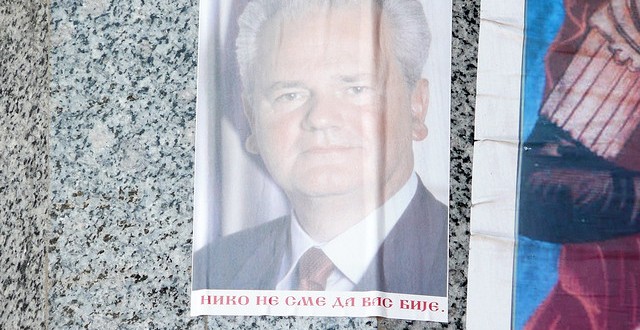
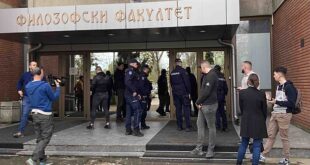
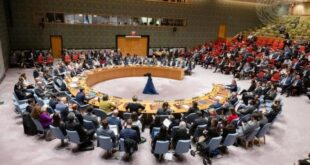
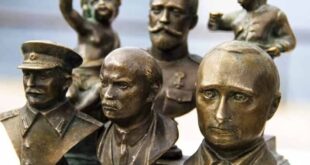
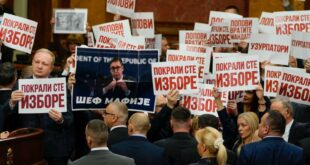
Un commento
Pingback: 25th anniversary of Milosevic’s speech in Kosovo Polje – dr. costamagna